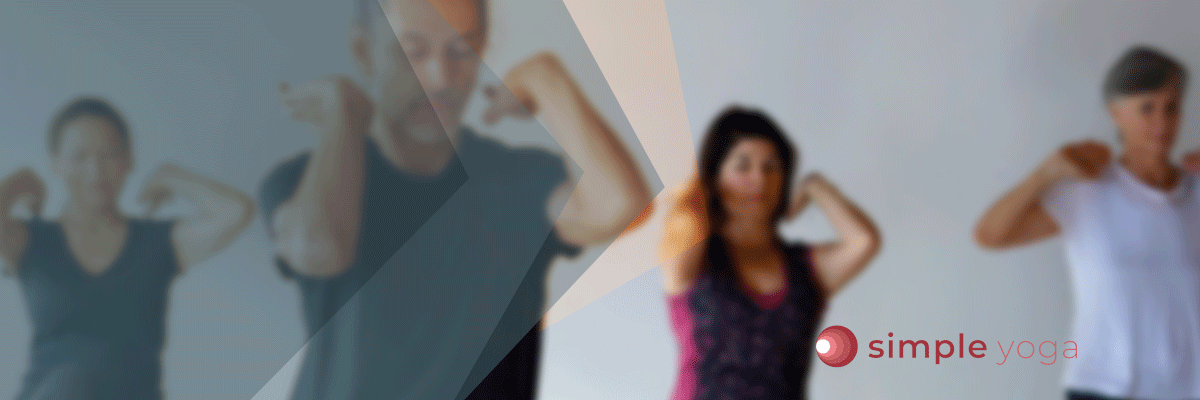Free Video Easy Meditation for Beginners
January 13, 2015How to Turn Habits Around (pratipaksha bhavanam)
February 11, 2015Free Video Easy Meditation for Beginners
January 13, 2015How to Turn Habits Around (pratipaksha bhavanam)
February 11, 2015Yoga: Am I doing enough?



When we approach something new, we often just try to grasp the general idea of the activity. As our knowledge and experience on the topic grow, the more we focus on details and subtleties. However, it can happen that deepening our focus may result in losing a wider perspective. For instance, as we first start practicing yoga postures, it is difficult, for most of us, to understand the detailed instructions that we receive. For instance, it may feel that we are barely capable of staying in the posture without holding our breath, so it seems truly impossible to try to internally rotate this or that while stretching the sole of the foot lengthwise without losing the tone of the inner arch of the back foot. As we make our practice more consistent over time, we may get so immersed in the minute details of the posture that we may forget to have a detached attitude and a soft gaze.
As i observe people around me, i notice a seemingly general tendency in the place where i live, where many people, in spite of enjoying many comforts, such as having a choice on what to eat and a warm space to shelter themselves from the rain and cold weather, seem to find it difficult to keep a gentle smile on their faces. I find that for many of us, our daily obligations and our jobs often become all consuming turning into a source of tension and stress.
As humans it is normal to develop patterns in our ways of moving, breathing, feeling and thinking. We are fortunate to be able to use some of these patterns in response to the stress of challenging and difficult situations with a general sense of alertness to help us focus on the task-at-hand, our survival. Of course, since the body has limited energy, it has to be intelligent in its allocation of resources. So, when we feel threatened, non-essential systems are made into a low priority. For instance, resting, restoring, maintenance and digestion are put on hold for a more convenient time. However, if that more convenient time does not come, the useful skill of alertness and reaction, can get out of control and deplete our energy.
One of the most common requests i hear in yoga class is a request for practices conducive to relaxation. I know that deep relaxation is a necessary and well-deserved reward to counteract our existing circumstances and bring us closer to balance. However, it is not surprising that our tendency to overdo, has become so entrenched, that it carries over into our yoga practice. Don’t get me wrong, I understand how good it feels to get a good workout and to feel the intensity of exploring the limits of what we can do. However, it is not uncommon for people who feel overworked, overextended, stressed out and sleep deprived, to come into the practice of yoga and to continue pushing themselves into more tension and stress. Sometimes this intensity can be the result of getting too caught up in the details of the practice and forgetting that balance is a fundamental aspect of yoga.
It could be argued that one of the essential concepts in yoga philosophy is discernment (in Sanskrit: viveka). Discernment is the capacity to see, feel and sense with increasing clarity the distinction between what is helpful and what is not helpful, what we can and cannot do, what is too much and what is too little. One suggestion that may be useful is to make our practice into a gentle and playful dance to help us explore doing more and then doing less, helping us fine tune our ability to modulate intensity between low and high according to our context, circumstances and to what we need. In this way, we can engage our mind more in our practice and to grow in our ability to sense with clarity and attentiveness the effects of each deliberate choice we make. Consequently, we will notice that our practice is also helping us hone the skills to notice the effects of our approach to working, living our lives and doing everything that we do. In brief, my suggestion is to ask ourselves more often:
- am i doing too much or too little?
- can i do more without forcing?
- would it be helpful to do less?
- can i savor this moment?
- can i be relaxed and alert?
We often ask ourselves, how do i know if i am trying too hard or not hard enough?
I would suggest that we find these answers by observing our mind, feeling the emotions in our heart and sensing the general state of our bodies. If your mind is more open, focused and clear, if your body feels supple, resilient and capable of doing what you need it to do and if your heart feels more gratitude and more love, you are probably on the right track.
Receive my sincere wish for vibrant health, peaceful mind and a loving heart,
Namaste
rubén